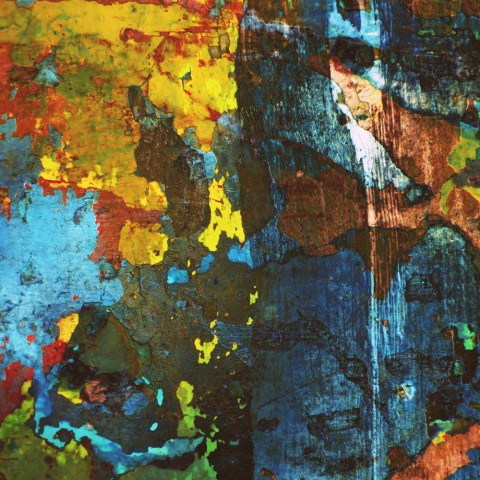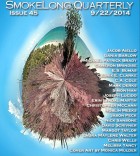The girl was chewing on a half-smoked cigarette and twisting her long dark hair around and around her finger. When I get out of Plovdiv, she said. The boy she was talking to, her brother, looked up at her with his big eyes and seemed to understand everything, though she knew he didn’t, knew he couldn’t hear a thing she said.
Outside, the April weather was like lukewarm tea and inside the air was stale. Her mother had gone for the morning to work and she, too, was going off soon, to pick up newspapers to sell. And who reads the paper these days? Though she knew someone would have to if she were ever going to get to Sofia and then to London and then, please, to New York.
She touched her brother’s face as his eyes closed. Almost eight years old and still napping, she thought. There’s something—but she stopped herself as she always did before she thought what she couldn’t take back. Crows called at the window, their rasping cries her alarm clock since she dropped her phone in a puddle on the way home. It was that day that she couldn’t stop crying for everything that had gone wrong—not for her, not for her—in her life. Everyone who was unhappy.
She was not unhappy because she had a plan. Sofia, London, New York. And no matter how long it took she knew that she would leave Plovdiv, she would sell enough papers to buy the bus ticket and then, when she got to Sofia, well, there were people there, there were jobs. Even her mother had said so and her mother was known around the neighborhood. A no-hoper, they whispered, as though it were an affliction she’d been born with.
Her brother was asleep. Now she could go. She touched her fingers to her lips and then to his, feeling his breath, hot and dry, upon her skin. Outside, again, the sky starched with some cheap powder, chalky, white. And warming. The puddles sizzled on the pavement as she skirted the garbage and the huddled crows.
The man who sold the papers gave them to her on credit as he always did, because he liked her. Said that she had initiative. Like Donald Trump, he said, and she smiled because she knew he didn’t think she understood.
Hawking the papers, she used her smile, her still-good teeth. She knew that there was a window she had to get through. A time after which she would never get out of Plovdiv, never leave Albena Street with its stray dogs and stink of grilled lamb. At the end of the afternoon, she returned to the man for her money, which she counted twice before she left. That was their thing—his trust and her distrust. It added up to something she could not quite name.
At home, her mother was crying and her brother was awake. He could not hear her and she kept out of his line of sight as she went to her mother. Who was drunk. She gave her some of the money she made from the newspapers though she knew it would be gone by the morning. Then she pressed a 50 stotinki coin into her brother’s hand for good luck.
Up in her room, she counted what she had, not nearly enough for the bus ticket to Sofia. Still, it was more than she’d had the day before. And there was still time, still time. A dog barked and she laughed. She didn’t know why. From below, her brother keened. He was looking at the crack in the ceiling. Something about it always made him cry, but of course he could never tell her what it was.



 The core workshop of SmokeLong Fitness is all in writing, so you can take part from anywhere at anytime. We are excited about creating a supportive, consistent and structured environment for flash writers to work on their craft in a community. We are thrilled and proud to say that our workshop participants have won, placed, or been listed in every major flash competition. Community works.
The core workshop of SmokeLong Fitness is all in writing, so you can take part from anywhere at anytime. We are excited about creating a supportive, consistent and structured environment for flash writers to work on their craft in a community. We are thrilled and proud to say that our workshop participants have won, placed, or been listed in every major flash competition. Community works.